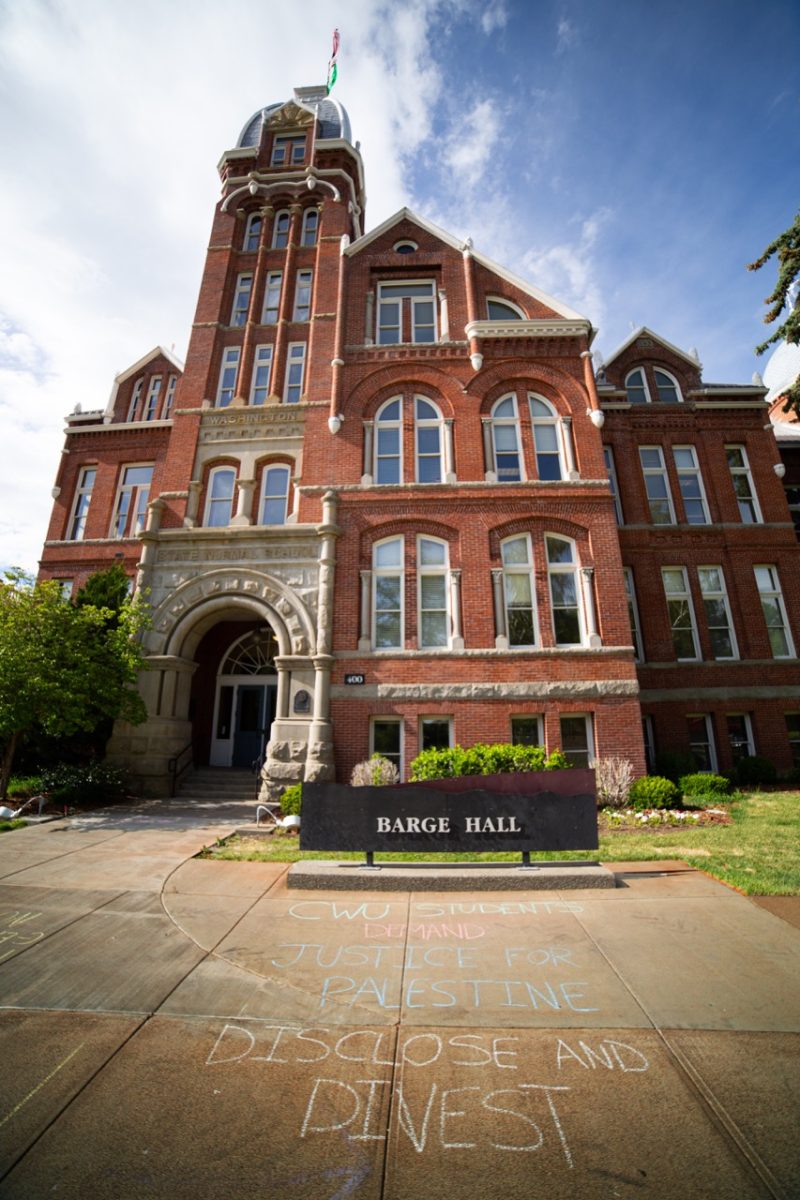CWU is the “most diverse university in Washington,” at least according to the banners displayed across campus. While the university claims levels of excellence in this department, how does CWU’s diverse population feel that they are being treated on campus?
When comparing the diversity rates among other large publicly funded state universities in Washington, CWU appears to not be the most diverse. According to the U.S. Department of Education College Scorecard, out of CWU’s student population, the three most considerable racial/ethnic groups are white students, which make up 53% of the population. Next would be hispanic students who make up 18% of the student population, and 9% being students of mixed race. While at the University of Washington’s Seattle Campus, 36% of their student population is white, 27% is Asian and 14% are undocumented students.
Lashaya Doty and Karissa Hanzy are both Black students on campus (which only makes up 5% of the student body according to the College Scoreboard mentioned above); they are currently on the board for the Black Student Union (BSU). Doty and Hanzy shared their experiences on campus as students of color; or rather their disappointment and frustration with how they’ve been treated.
Hanzy, who works in dining services, shared their story of dealing with racism from fellow workers on the job. “There’s a student manager in dining who would purposely target me and one of my friends… they would target me because I’m Black, and they’d target my friend because they’re trans and Hispanic,” they said.
Doty came to CWU because of the university’s extensive advertising that displayed the school as the most diverse university in Washington. Doty shared her unfortunate encounter with racism during her first year here. “I was just waiting for [one of my friends in the lobby of the dorm building]… and I don’t know who she was, but she came out… and looked me up and down and said, ‘What are you doing?’”
Doty proceeded to tell this woman that she was simply waiting for one of her friends who lives in that dorm building. The woman responded by saying, “Oh, well we don’t do that here.” The woman then proceeded to shut the door on Doty to prevent her from entering the building.
This wasn’t the only racist encounter Doty has faced on campus, nor was it the worst one.
As a board member of BSU, Doty and the former Vice President of BSU were tabling in the SURC towards the beginning of the 2023–2024 school year when a white student approached their table and repeatedly used racist and derogatory language towards them.
“[He] just started talking about how we wanted to be a rapper and he got upset that [he was unable] to use the N-word and full on said it to us and kept repeating [it]… I was so shocked because, out of all people, he came up to the only two Black women there… my former vice president handled it really well… [but the guy] just kept proceeding… while also using the N-word.”
Unfortunately, when Doty and the former Vice President of BSU reported this incident,“Nothing happened at all, and that really just struck such a deep nerve for me because I’m Black,” Doty said. “I know what that word means.”
Doty shared that this incident put “things into perspective” for her. This opened her eyes to how CWU treats its diverse population, Dohty believes that CWU treats its diverse population in a tokenizing manner.
“They’re very quick to get a picture and that’s it,” Doty said. “They were so quick [to take a picture of] BSU… when it comes to that situation [with the racist student at BSU’s tabling event]… nothing happened and I’m still dealing with the trauma and… just looking at the school so differently because no one did anything.”
Both Doty and Hanzy expressed the importance of a Multi-Cultural Center (MCC), and the need for one at CWU. This has been furthered since the construction of the stand-alone MCC building, that the diverse population of CWU was promised, would not be happening.
“If we’re really the most diverse school, why don’t we have an MCC… [like other] schools do that aren’t labeled as the most diverse?” remarked Hanzy.
“I didn’t even know what an MCC was until I got here, and I didn’t realize we didn’t have one at all… if we’re going to preach diversity, you got to make things happen, not talk about it in a room all the time,” Doty added.
In response to the Board of Trustees (BOT) telling students involved with the MCC that there was no reason to build one and that the one room in the Diversity and Equity Center should be enough for all nine Equity and Service Council (ESC) organizations, Doty and Hanzy had this to say:
“Why do you need to keep putting our pictures (pictures of diverse students on campus) … and saying we’re the most diverse if we don’t need it?” Doty said. “How are you going to preach diversity? We need [the MCC]… it’s just disappointing honestly.”
Hanzy also shared their perspective on the matter.
“[We’re] the most ‘diverse’ but we have the least space to provide that diversity… the MCC… would be a big step… Other places have it: Gonzaga, Western Washington University and the University of Washington, but are they considered the most diverse? No. Are we? Yes, and what do we have? A little corner room in a building to represent diversity,” they stated.
The stories and perspectives Hanzy and Doty have shared are important. But what can CWU learn from this? How can CWU help support students like Hanzy and Doty and the rest of the diverse population on campus?
“They need to look out more for BIPOC (Black, Indigenous and people of color) staff because there’s so many white staff here that I don’t feel comfortable… going to some of my professors,” Hanzy said. “Most of them are going to be white… they’re not going to understand the struggles that I’ve been going through… as a non-heterosexual multicultural person.” “[We] need stronger student leadership and people that actually care to be the people doing the change.”
Doty followed up with, “Put your money where your mouth is because there’s so much talk and it’s never action… we need action, we really do… you need to speak for us in a way but also uplift our voices.”


